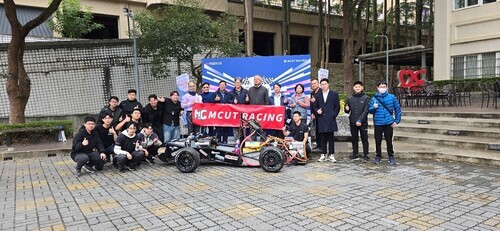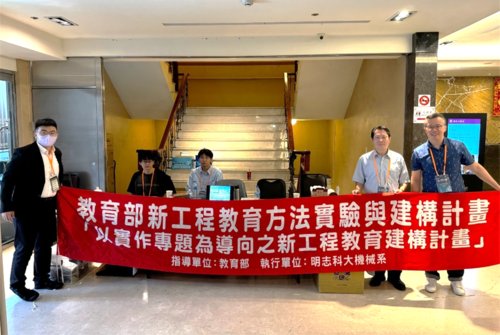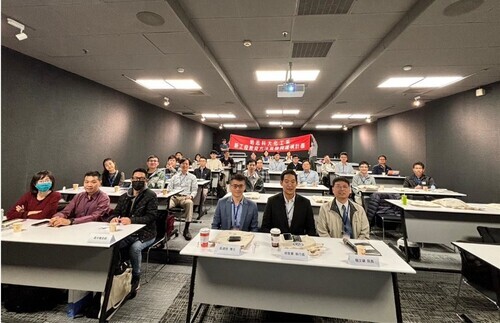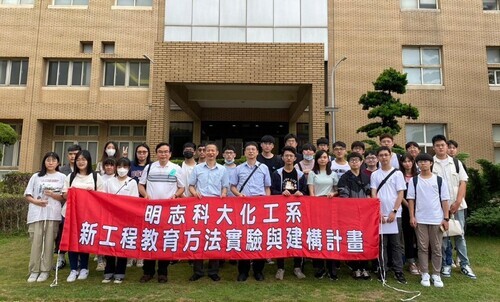Cultivating New Engineering Talent! Ming Chi University of Technology Departments Fully Experimenting with and Constructing New Engineering Education Methods




The Ministry of Education has been promoting the "New Engineering Education Method Experiment & Construction" program since 2019, aiming to enhance the continuity of engineering education and practical application skills. This initiative seeks to cultivate engineers with innovative thinking and cross-disciplinary integration abilities. Entering its second phase in 2023, the Ministry of Education requires technical and vocational institutions to further deepen the planning of theme-based course clusters, break and restructure existing curriculum frameworks, and incorporate the concept of design thinking to make engineering education more flexible and aligned with real industry needs.
Ming Chi University of Technology (MCUT) in New Taipei City has been piloting new engineering education for several years. Initially, the Mechanical Engineering and Chemical Engineering departments took the lead in implementing the program by introducing real-world engineering problems and integrating college resources. This approach has helped students develop both practical professional skills and teamwork capabilities, ultimately cultivating engineering talents equipped with both theoretical knowledge and hands-on expertise for the industry.
According to the Ministry of Education's review results announced in early March, a total of 22 projects were approved nationwide for the 2025-2026 New Engineering Program, with MCUT securing five of them—the highest number of approvals in the country—receiving a total grant of NT$21 million. The approved projects include:
- The College of Engineering’s "Utilizing interdisciplinary soft intelligence & Phenomenon-based course Categories to cultivate π-shaped engineering talents"
- The Department of Electronic Engineering’s "Training Program for Electronic System Implementation"
- The Department of Mechanical Engineering’s "A Project-Based Approach for the Construction of a New Engineering Education Program"
- The Department of Chemical Engineering’s "Constructing a New Chemical Engineering Education Program Centered on Green Technology and Environmental Sustainability"
- The Department of Safety Health and Environmental Engineering’s "Net-Zero Green Talent Program: Thematic Curriculum in Waste Resource Recovery for Circular Economy Development"
In each project, various colleges and departments have organically integrated courses, forming knowledge chains centered around specific themes. By employing teaching strategies such as co-teaching by academic faculty and industry experts, students are able to absorb theoretical knowledge while effectively enhancing their practical skills.
In fact, as part of its own second-phase Higher Education Sprout Project, Ming Chi University of Technology (MCUT) has already expanded the experimental framework of new engineering education to all engineering disciplines. Each department has planned diverse theme-based course clusters, ensuring the seamless integration of real-world engineering applications into project-based courses. Additionally, the university has optimized course design, reduced curriculum overlap, and alleviated students' learning burdens.
MCUT emphasized that its departments will continue incorporating real-world engineering challenges into their curricula while strengthening course progression and continuity. By doing so, the university aims to implement engineering education innovations and cultivate highly skilled new-generation engineers to meet the urgent needs of the industry.








